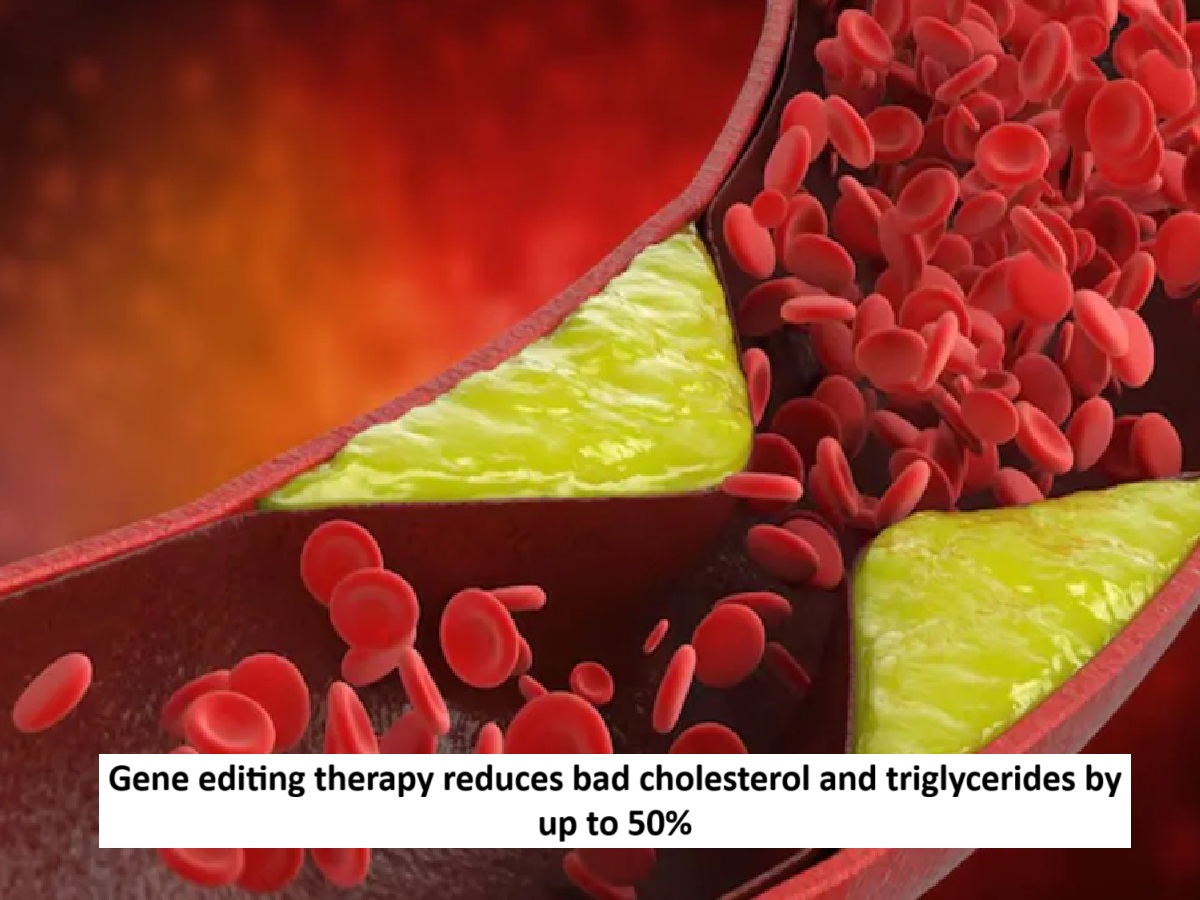
News Topical, Digital Desk : Australian researchers have led the first human trials of a breakthrough gene editing therapy that halves bad cholesterol and triglycerides in people with hard-to-treat lipid disorders.
The trial tested CTX310, a single-dose CRISPR-Cas9 gene editing therapy that uses fat-based particles to carry CRISPR editing tools to the liver, thereby turning off the ANGPTL3 gene.
According to a statement by Australia's Monash University, turning off this gene reduces LDL (bad) cholesterol and triglycerides, two blood fats linked to heart disease. The Victorian Heart Hospital, operated by Monash Health in partnership with Monash University, treated three of 15 patients aged 18-75 with hard-to-treat lipid disorders in the first phase of a global trial conducted in Australia, New Zealand and the UK.
decreased by approximately 60 percent
The study reported that a single course of treatment with CTX310 at the highest dose resulted in an average reduction of 50 percent in LDL cholesterol and 55 percent in triglycerides, which remained reduced for at least 60 days, two weeks after treatment. LDL cholesterol and triglycerides were reduced by approximately 60 percent in all participants at different doses, with only mild, short-term side effects reported.
CTX310 is the first therapy to achieve significant reductions in both LDL cholesterol and triglycerides at the same time, marking a potential breakthrough for people with mixed lipid disorders in whom both are elevated, according to the trial published in the New England Journal of Medicine.
Effective for the health system
Stephen Nicholls, director of the Victorian Heart Hospital and lead investigator of the study, said the possibility of a single-course treatment with lasting effects could be a major step forward in how we prevent heart disease. "It makes treatment easier and reduces ongoing costs," Nicholls said.
This reduces pressure on the healthcare system, while improving a person's quality of life. He emphasized the plan to focus on larger and more diverse patient populations in future trials of CTX310.
Read More: Does your face suddenly swell? A doctor explains the possible cause.
--Advertisement--

 Share
Share



